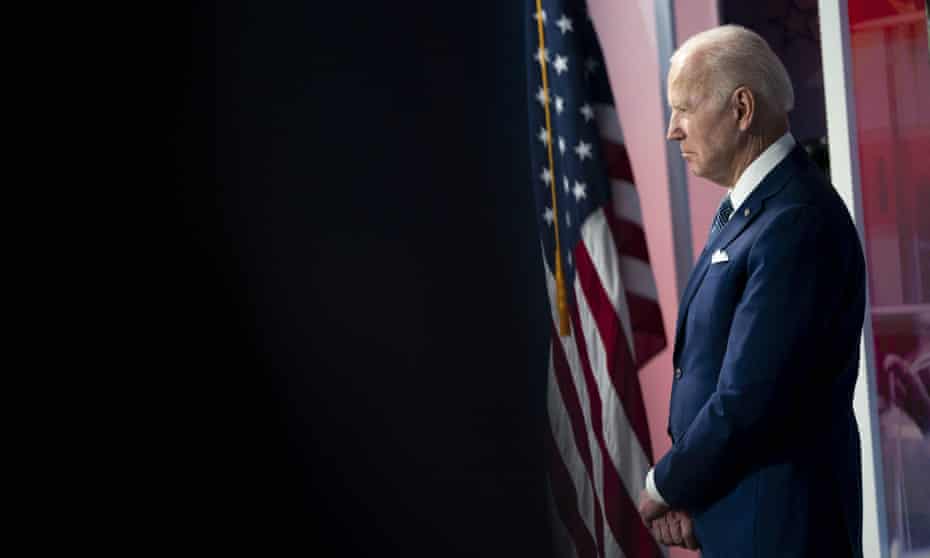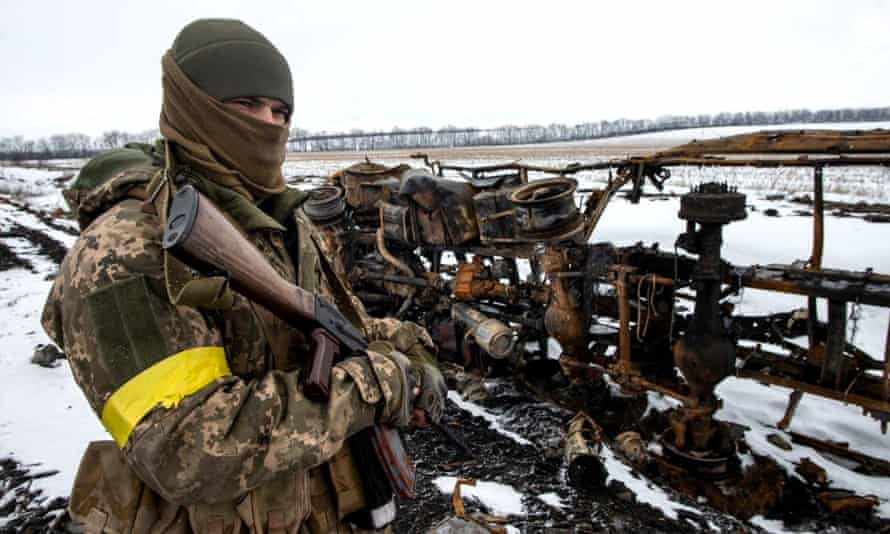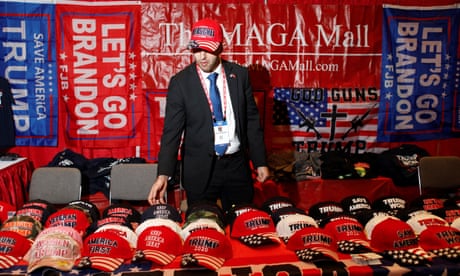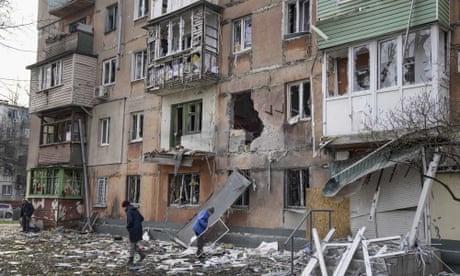Biden’s impossible bind: how should the US tackle Russia’s invasion of Ukraine?

The US president is facing demands for America to do more for Ukraine – but he’s also determined to avoid being the US president who started a third world war
It is an impossible bind. Joe Biden faces demands for America to do more as Ukrainian civilians are terrorized and killed by Russia. But he is also determined to avoid going down in history as the US president who started a third world war.
Russia has pummeled Ukraine with more than 625 missiles so far, according to the Pentagon, causing untold death and destruction and prompting an exodus of 2m refugees. Vladimir Putin is now reportedly recruiting Syrian mercenaries and preparing to level cities in a bid to break Ukrainians’ will in the face of his invasion.
In response, the US president has imposed unprecedented sanctions and joined allies in turning Russia into a global pariah. Last month he authorised $350m in military aid to Ukraine and he has given officials the go ahead to share intelligence with Kyiv at a “frenetic” pace.
But none of this has prevented a humanitarian catastrophe that generates traumatic images on TVs and newspaper front pages. For many in America there is a sense of anger, frustration and impotence: why can the world’s biggest military superpower not intervene?
A vocal minority contends that Biden can and should. Adam Kinzinger, a Republican congressman and veteran of the wars in Afghanistan and Iraq, has urged Nato to declare a “no-fly zone” to disrupt Russian air operations and “give the heroic Ukrainians a fair fight”.
The call has been echoed by Ukraine’s president, Volodymyr Zelenskiy, who accused Nato of “weakness” and “disunity” after the alliance ruled it out.
But the Biden administration has firmly rejected the idea, wary that it might require US forces to shoot down Russian aircraft and so draw the two nuclear-armed nations into confrontation. Its caution-first approach posits a three-dimensional chess game in which one bad move could herald disaster.
Antony Blinken, the secretary of state, told NBC’s Meet the Press on Sunday: “For everything we’re doing for Ukraine, the president also has a responsibility to not get us into a direct conflict, a direct war, with Russia, a nuclear power, and risk a war that expands even beyond Ukraine to Europe. That’s clearly not our interest. What we’re trying to do is end this war in Ukraine, not start a larger one.”
Most members of Congress appear to be on the same page. Both Democrats and Republicans have warned that, with his back against the wall and his state of mind in question, Putin could lash out in unpredictable ways.
Republican Marco Rubio, vice-chair of the Senate intelligence committee, told ABC’s This Week with George Stephanopoulos: “A no-fly zone has become a catchphrase. I’m not sure a lot of people fully understand what that means. That means flying Awacs [airborne warning and control system] 24 hours a day. That means the willingness to shoot down and engage Russian airplanes in the sky.
“That means, frankly, you can’t put those planes up there unless you’re willing to knock out the anti-aircraft systems that the Russians have deployed, and not just in Ukraine, but in Russia and also in Belarus … It means starting world war III.”
Biden is keenly aware how the law of unintended consequences has haunted past US presidents during military misadventures in Vietnam and Iraq. Neo-conservative nation-building has fallen into disrepute. Last year Biden ended the country’s longest war, in Afghanistan, so he has little appetite for starting a new one.
But non-intervention also carries a moral price.
In 2011, when Biden was vice-president, Barack Obama declared that the Syrian dictator Bashar al-Assad should step aside, but he resisted calls to send in US troops even as the regime killed, jailed, tortured and unleashed chemical weapons on its own people.

Hawks in Washington are urging Biden to avoid a similar scenario. John Bolton, a member of Republican administrations since Ronald Reagan was president, said: “If you believe that you put Nato’s planes in the sky over Ukraine and there’s an engagement between a Nato plane and a Russian plane, and from that one single engagement in an instant you’re at world war III, then you have given Russia incredible leverage over us.
“They’re now deterring us and that really is the argument: ‘No-fly zone will lead to world war III.’ That’s not true.”
Lindsey Graham, a Republican senator, went even further by suggesting in a tweet that Putin should be assassinated – a comment that illustrated how quickly hostile rhetoric could spiral out of control. Jen Psaki, the White House press secretary, responded flatly: “That is not the position of the United States government and certainly not a statement you’d hear come from the mouth of anybody working in this administration.”
Short of a no-fly zone, Zelenskiy has asked for Soviet-era MiG-29 jets, which Ukrainian pilots are capable of operating. On Tuesday Poland agreed to send all its MiG-29s “immediately and free of charge” to an American air base in Germany so they can be delivered to Ukraine. But the timing remains uncertain.
Ben Sasse, a Republican member of the Senate intelligence committee, said: “The clock is ticking and Russia is attacking Ukraine’s airfields. President Biden needs to get this MiG transfer done and he needs to get it done today. Ukraine doesn’t have time for paperwork. Load these MiGs up and get them to Ukrainian pilots who can still make a difference. Don’t slow walk this.”
But the Pentagon then appeared to scupper – or at least delay – the plan, saying it was not “tenable”.
In a statement, the Pentagon said the prospect of the jets departing from a US airbase “to fly into airspace that is contested with Russia over Ukraine raises serious concerns for the entire Nato alliance”.
In the meantime Biden has banned all imports of Russian oil and gas, “targeting the main artery of Russia’s economy” despite domestic political risks, and raised the level of US troops in Europe to about 100,000. He is locked in the most dangerous showdown with a Russian leader since John F Kennedy went head to head with Nikita Khrushchev in the Cuban missile crisis 60 years ago.
Lawrence Haas, a former communications director for Vice-President Al Gore and author of the book The Kennedys in the World, said: “Biden needs to calibrate his response to reduce the chances that this crisis will escalate out of control. He has made clear that we’re not going to send US troops and Nato’s not going to send troops and I think that’s reasonable.
“But I do believe that he could ramp up the sanctions to the maximum extent possible and also provide more weaponry to Ukraine to fight its own battle.”


No comments:
Post a Comment